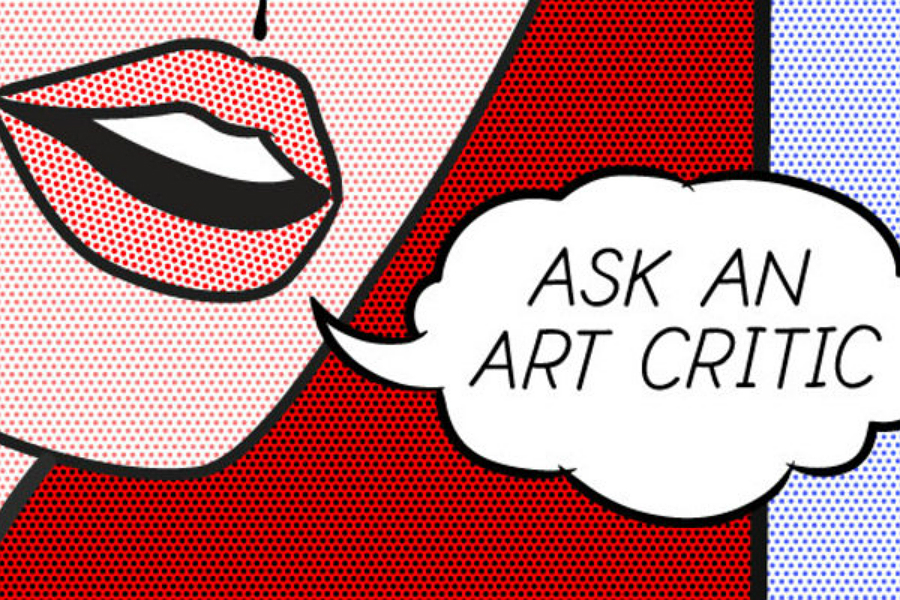In Defence of Criticism

Lately, we’ve found ourselves on the receiving end of hurt feelings. We outline why it’s sometimes hard, but so important, to retain standards and therefore credibility…
Writing critically, dispensing balanced, well-argued opinion (rather than a stream of unjustified negativity) and being honest. It can be a lot harder than it sounds; especially in a city like Liverpool, where on any given day you could publish a review of a band/exhibition and then bump into the subject of your article later that day on Bold Street. The reality is we live in a village, where it seems everybody knows everybody and things can get very messy, very quickly indeed.
Of course, we knew this before The Double Negative was launched, having previously experienced the realities at close quarters. I certainly had, writing for a number of publications (both in Liverpool and elsewhere), and Laura (Robertson, co-editor) had, as an artist and curator at The Royal Standard Gallery. I can’t speak for Laura, but for my part, there’s one pertinent thing I’ll never forget. One time I reviewed a gig; writing in as conscientious a fashion as possible (as one always should, of course), I went as far as to say that the headliners, though technically proficient, were achingly formulaic.
My review (which, hoarder that I am, I still had saved and have just reread) stands up, and it’s something, if I say so myself, that quality-wise is fine. However, the review went mysteriously unused. Next month – coincidentally or otherwise (I’d argue the latter) – the band I’d gently critiqued were on the cover of the publication I’d written the piece for, treated to a nice feature. Are people really so afraid of putting creative’s noses out of joint? The answer, sometimes apparently, is yes.
Don’t get me wrong, I understand the thought process; creative people are our bread and butter. We may even enjoy a pint with them now and again, never mind happen across them in town. The thing is, the point of writing, reviewing and talking about these things isn’t to behave blindly as cheerleaders. Surely it’s to hold up a mirror to creative output in all its forms and be able to say what we think about it. This idea (or ideal, depending on your point of view) was one of the foundations upon which The Double Negative was founded. If that sounds a little conceited, it’s not meant to. After all we’re not alone in holding this opinion.
You don’t have to take my word for it either. When journalist, critic and industry legend Miranda Sawyer kindly agreed to appear at our blogs vs critical writing Biennial event last year, she had this to say on the subject: “It’s fine to be friends with an artist. Many artists are really likeable: charming, funny, original thinkers, great to get drunk with. But as a journalist, your loyalty is to your reader. Your job is to tell them about the work, or the person, and also – and this is really important – what you honestly think. There isn’t an artist out there that hasn’t made duff work. If it’s bad, you need to say why. Same also applies if it’s good. And if you end up falling out with the artist over that, then so what? It’s not your job to make friends with new and exciting people.”
And don’t forget, we’re subject to the same set of rules ourselves – if you think this article is poorly written and ill-informed, you can say so. But, as with any good critic, you must be able to say why you think that.
The thing is, different people will take criticism (with a capital C) differently. Some take it on the chin; they might not like what you’ve written but are big enough to get on with things, safe in the knowledge that for all the people who agree with that particular viewpoint, there will be as many (if not more) who do not. Some can’t help but react as if they’ve just received a playground insult, going off half-cocked in unedifying kneejerk fashion. Then there are the odd ones, the ones who either feign embarrassment at a good review or – maddeningly – misread it entirely, managing to peer between the positive lines only to find unfettered negative criticism.
And therein lies the problem: you never know how an individual or collective are going to respond to whatever it is you write. The key thing, and the real lesson here, is that you can’t afford to second guess. If you want to retain any credibility as a writer and be taken seriously as a publication, you have to stick to your guns. You’re writing for your readers, not the subject of whatever article it is. To that end, you’re an arbiter: is this good or is it bad? Is it worth spending a tenner on?
It’s not fair therefore to pretend something is good when it isn’t, thus encouraging your readership to waste their hard-earned, or perhaps worse, ignoring altogether the thing you know to be bad, crossing your fingers that somebody else will write the review you weren’t brave – or honest – enough to.
This approach results in exactly the thing this city and the world at large simply doesn’t need; another clapping seal. Liverpool is an exciting progressive place right now, if that is to continue to be the case, resulting in a self-sustaining healthy creative environment, good criticism can and must play its part.
Mike Pinnington





